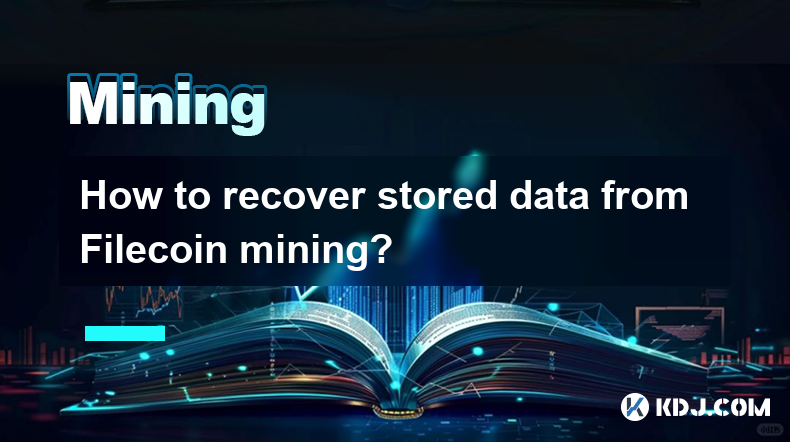-
 Bitcoin
Bitcoin $92,791.8043
-1.35% -
 Ethereum
Ethereum $1,755.1542
-3.41% -
 Tether USDt
Tether USDt $1.0002
-0.01% -
 XRP
XRP $2.1670
-5.40% -
 BNB
BNB $597.8018
-2.59% -
 Solana
Solana $148.6654
-3.10% -
 USDC
USDC $1.0000
0.00% -
 Dogecoin
Dogecoin $0.1741
-5.86% -
 Cardano
Cardano $0.6943
-2.44% -
 TRON
TRON $0.2457
-0.42% -
 Sui
Sui $3.0286
2.61% -
 Chainlink
Chainlink $14.4764
-4.73% -
 Avalanche
Avalanche $22.0152
-4.12% -
 UNUS SED LEO
UNUS SED LEO $9.2234
2.05% -
 Stellar
Stellar $0.2687
-2.01% -
 Toncoin
Toncoin $3.1166
-0.77% -
 Shiba Inu
Shiba Inu $0.0...01320
-3.99% -
 Hedera
Hedera $0.1818
-3.34% -
 Bitcoin Cash
Bitcoin Cash $347.4785
-3.75% -
 Polkadot
Polkadot $4.0211
-3.26% -
 Litecoin
Litecoin $81.4299
-4.20% -
 Hyperliquid
Hyperliquid $17.9559
-5.59% -
 Dai
Dai $1.0000
-0.01% -
 Bitget Token
Bitget Token $4.3936
-4.77% -
 Ethena USDe
Ethena USDe $0.9992
-0.02% -
 Pi
Pi $0.6496
-3.57% -
 Monero
Monero $224.5697
-2.17% -
 Uniswap
Uniswap $5.7648
-4.97% -
 Pepe
Pepe $0.0...08565
-7.33% -
 Aptos
Aptos $5.3125
-1.27%
How to recover stored data from Filecoin mining?
Retrieving Filecoin data involves requesting pieces from multiple miners, costing depends on data size, location, and network congestion; specialized tools simplify this complex process, requiring understanding of CIDs and data sealing.
Mar 01, 2025 at 02:42 am

Key Points:
- Filecoin data retrieval is more complex than simply accessing a file on a hard drive. It involves locating and requesting data from multiple storage providers.
- The process relies on Filecoin's distributed nature, requiring interaction with the Filecoin network and potentially multiple miners.
- Retrieval costs depend on factors like data size, storage provider location, and network congestion.
- Specialized tools and services can simplify the retrieval process.
- Understanding Filecoin's addressing system and data sealing is crucial for successful retrieval.
How to Recover Stored Data from Filecoin Mining?
Filecoin, a decentralized storage network, presents a unique challenge when it comes to data retrieval. Unlike traditional storage methods, your data isn't stored in a single location. Instead, it's spread across a network of miners, each holding a piece of your data, ensuring redundancy and resilience against single points of failure. Therefore, recovering your data involves a more complex process than simply accessing a file on your personal computer.
The first step is to identify the CID (Content Identifier). This unique cryptographic hash acts as your data's address on the Filecoin network. You'll need this to locate your data among the numerous pieces distributed across the network. This CID is crucial; without it, retrieving your data is virtually impossible.
Next, you'll need to locate the miners who currently store your data. The Filecoin network maintains a record of which miners possess which pieces of data. This information is accessible through the Filecoin network's APIs and various explorer tools. It's not simply a matter of choosing any miner; you need to find those holding the specific pieces that comprise your complete data set.
Once you've identified the relevant miners, you initiate a data retrieval request. This is done through the Filecoin network's protocol. The request specifies the CID, the desired data pieces, and your payment information. Miners will respond to your request, providing the requested data segments.
Filecoin retrieval isn't free. The cost is dependent on several factors: the amount of data being retrieved, the distance between the miners and you (network latency), and the current network congestion. Expect to pay a fee to each miner who provides a piece of your data. This cost is usually calculated and displayed before you initiate the retrieval process.
The process of assembling the retrieved data pieces is crucial. The Filecoin protocol incorporates mechanisms to ensure data integrity and to prevent manipulation. While most clients and tools handle this automatically, understanding the underlying process can be beneficial for troubleshooting.
For simpler retrieval, several third-party tools and services exist. These tools act as intermediaries, simplifying the process of locating miners, initiating retrieval requests, and assembling the data. These services often offer user-friendly interfaces and manage the complexities of the Filecoin network on your behalf. However, using these services typically involves additional fees.
Understanding Filecoin's data sealing process is vital. Data is sealed using cryptographic techniques, ensuring data integrity and authenticity. This sealing process contributes to the security and reliability of Filecoin, but it's an important concept to grasp when troubleshooting retrieval issues.
Frequently Asked Questions:
Q: What if I lose my CID?
A: Losing your CID renders data recovery extremely difficult, if not impossible. The CID is the essential address for your data on the Filecoin network. Without it, locating and retrieving your data is impractical. Proper record-keeping of your CIDs is crucial.
Q: How long does data retrieval take?
A: The retrieval time depends on several factors: data size, network congestion, miner availability, and the geographical distance between you and the miners. It can range from minutes to hours, even days for exceptionally large datasets or during periods of high network traffic.
Q: Are there any risks associated with Filecoin data retrieval?
A: While Filecoin is designed for security and reliability, risks still exist. These include the possibility of encountering unresponsive miners, network outages, or issues with data integrity. Using reputable retrieval tools and services can mitigate these risks.
Q: What if a miner is offline or unresponsive?
A: Filecoin's redundancy mechanisms address this. Your data is replicated across multiple miners. If one miner is unavailable, the retrieval process will automatically use other miners holding copies of your data. However, prolonged unavailability from multiple miners could lead to delays or partial data recovery.
Q: How do I choose a reliable Filecoin storage provider?
A: Choosing a reliable provider involves research. Check the provider's reputation, storage capacity, network connectivity, and uptime. Look for providers with a strong track record and positive reviews from other users. Note that even reputable providers may experience occasional outages.
Q: What are the costs involved in retrieving data from Filecoin?
A: Costs depend on factors like data size, network congestion, and the miner's location. You'll pay a fee to each miner providing a portion of your data. The total cost will be the sum of these individual fees, plus any fees charged by third-party retrieval services.
Q: Can I retrieve only a portion of my data?
A: Yes, you can specify which parts of your data you need when initiating the retrieval request. This allows for retrieving only the necessary portions, reducing the cost and retrieval time. However, the precision of this selection depends on how your data was initially divided and stored on the Filecoin network.
Q: Is there a way to test Filecoin retrieval before storing large amounts of data?
A: Yes, storing a small test file and retrieving it can verify the process and assess the retrieval time and cost. This is a recommended practice before entrusting large or critical data to the Filecoin network. This allows you to familiarize yourself with the process and identify potential issues early on.
Disclaimer:info@kdj.com
The information provided is not trading advice. kdj.com does not assume any responsibility for any investments made based on the information provided in this article. Cryptocurrencies are highly volatile and it is highly recommended that you invest with caution after thorough research!
If you believe that the content used on this website infringes your copyright, please contact us immediately (info@kdj.com) and we will delete it promptly.
- After Years of "PUA", Zora Finally Issued a Coin, but the Community Users Did Not Get the "Big Result" They Wished For
- 2025-04-24 21:20:11
- Bitcoin (BTC) Has Exceeded the Realized Price of Short-term Holders, Exciting Analysts
- 2025-04-24 21:20:11
- PEPE Price Surge Re-enters the Crypto Spotlight with a 17% Breakout
- 2025-04-24 21:15:12
- US President Donald Trump Signed an AI Executive Order
- 2025-04-24 21:15:12
- Spot Bitcoin ETF inflows are at their highest since January 2025.
- 2025-04-24 21:10:12
- Mantle Network Launches MI4, a Institutional-Grade Digital Asset Index Fund Targeting $400M Market Gap
- 2025-04-24 21:10:12
Related knowledge

How to judge the stability and reliability of the mining pool?
Apr 19,2025 at 02:08pm
When engaging in cryptocurrency mining, choosing the right mining pool is crucial for maximizing your returns and ensuring a stable mining experience. The stability and reliability of a mining pool can significantly impact your overall success in mining. Here, we will explore the key factors to consider when evaluating the stability and reliability of a...

How to deal with abnormal noise during mining machine operation?
Apr 17,2025 at 01:35am
Mining machines are essential tools for cryptocurrency miners, but they can sometimes produce abnormal noises that may indicate underlying issues. Understanding how to identify and address these noises is crucial for maintaining the efficiency and longevity of your mining equipment. This article will guide you through the process of dealing with abnorma...

How to choose the right ASIC mining machine model?
Apr 21,2025 at 08:00am
Choosing the right ASIC mining machine model is crucial for maximizing your returns in cryptocurrency mining. The market offers a variety of ASIC miners, each with its own set of specifications and performance metrics. Understanding the key factors that influence your choice can help you make an informed decision that aligns with your mining goals and b...

How to maintain anonymity when mining?
Apr 17,2025 at 06:01pm
Maintaining anonymity when mining cryptocurrencies is crucial for many miners who wish to protect their privacy and security. This article will guide you through various strategies and tools that can help you achieve a high level of anonymity while engaging in mining activities. Understanding the Importance of Anonymity in MiningAnonymity in the context...

How to automate mining tasks through scripts?
Apr 18,2025 at 01:29pm
In the world of cryptocurrency, mining remains a crucial activity for generating new coins and securing blockchain networks. Automating mining tasks through scripts can significantly enhance efficiency and reduce manual labor. This article delves into the intricacies of automating mining tasks, providing a comprehensive guide on how to achieve this usin...

How to switch mining algorithms in the mining pool?
Apr 18,2025 at 12:00pm
Switching mining algorithms in a mining pool can be a strategic move for miners looking to optimize their mining operations. This process involves several steps and considerations, and understanding how to navigate it can significantly impact a miner's efficiency and profitability. In this article, we will explore the detailed steps required to switch m...

How to judge the stability and reliability of the mining pool?
Apr 19,2025 at 02:08pm
When engaging in cryptocurrency mining, choosing the right mining pool is crucial for maximizing your returns and ensuring a stable mining experience. The stability and reliability of a mining pool can significantly impact your overall success in mining. Here, we will explore the key factors to consider when evaluating the stability and reliability of a...

How to deal with abnormal noise during mining machine operation?
Apr 17,2025 at 01:35am
Mining machines are essential tools for cryptocurrency miners, but they can sometimes produce abnormal noises that may indicate underlying issues. Understanding how to identify and address these noises is crucial for maintaining the efficiency and longevity of your mining equipment. This article will guide you through the process of dealing with abnorma...

How to choose the right ASIC mining machine model?
Apr 21,2025 at 08:00am
Choosing the right ASIC mining machine model is crucial for maximizing your returns in cryptocurrency mining. The market offers a variety of ASIC miners, each with its own set of specifications and performance metrics. Understanding the key factors that influence your choice can help you make an informed decision that aligns with your mining goals and b...

How to maintain anonymity when mining?
Apr 17,2025 at 06:01pm
Maintaining anonymity when mining cryptocurrencies is crucial for many miners who wish to protect their privacy and security. This article will guide you through various strategies and tools that can help you achieve a high level of anonymity while engaging in mining activities. Understanding the Importance of Anonymity in MiningAnonymity in the context...

How to automate mining tasks through scripts?
Apr 18,2025 at 01:29pm
In the world of cryptocurrency, mining remains a crucial activity for generating new coins and securing blockchain networks. Automating mining tasks through scripts can significantly enhance efficiency and reduce manual labor. This article delves into the intricacies of automating mining tasks, providing a comprehensive guide on how to achieve this usin...

How to switch mining algorithms in the mining pool?
Apr 18,2025 at 12:00pm
Switching mining algorithms in a mining pool can be a strategic move for miners looking to optimize their mining operations. This process involves several steps and considerations, and understanding how to navigate it can significantly impact a miner's efficiency and profitability. In this article, we will explore the detailed steps required to switch m...
See all articles























































































